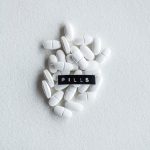This guest post is by Megan Adolph from www.WholisticWanders.com, discussing the advantages of switching to mushroom coffee. She offers valuable tips and insights for anyone looking to enhance their health and lose weight.
Over time, I’ve realized how significantly coffee affects my body. In college, I couldn’t imagine life without it; I loved the taste, aroma, and the energy boost it provided. However, I soon started noticing how my body reacted to caffeine. I often felt jittery, nauseous, or drained later in the day, leading me to seek more caffeine. It was my body’s way of signaling, “Hey! Something’s not right!”
I didn’t fully grasp the extent of my caffeine problem until college. During a class, I was undergoing an exercise test to monitor my heart rhythm when my professor asked, “Did you know you have an irregular heartbeat?” I was shocked and later learned it was linked to my caffeine intake. That was the moment I realized the seriousness of the issue. Not only was I consuming too much coffee, but I was also drinking pre-workout and energy drinks, which explained why my heart wasn’t functioning properly.
A few years later, I discovered mushroom coffee and started incorporating it into my diet. I can honestly say it was one of the best changes I’ve made. My body functions more smoothly now, and I no longer experience jitters or sugar crashes throughout the day. I sleep better and feel more rested, plus I have more energy than when I relied on traditional caffeine sources. And the money I save on Starbucks? That’s a bonus!
What better way to kick off the day than with a fresh cup of coffee? I can almost smell it brewing, just like countless others do every morning, afternoon, and evening. It’s no surprise our bodies struggle to rest fully!
One key lesson I’ve learned is that food, particularly caffeine, affects everyone differently. The average American drinks about 3.5 cups (28 oz) of coffee daily, which amounts to around 336 milligrams of caffeine. According to the Institute of Integrative Nutrition and the Mayo Clinic, up to 400 mg of caffeine per day is generally safe for healthy adults. However, consuming 500-600 mg can lead to negative side effects. Each person’s response to caffeine varies significantly.
Coffee contains phytonutrients that help stabilize free radicals, prevent tumor growth, aid in vitamin C absorption, and provide small amounts of magnesium, potassium, and niacin. Moderate caffeine intake can enhance athletic performance and improve focus. However, like anything else, excessive caffeine can lead to negative effects.
Caffeine stimulates adrenaline production, activating the adrenal glands in ways they wouldn’t normally function, which can eventually lead to adrenal fatigue. High caffeine intake can also slightly reduce bone density and increase health risks. Simply put, our bodies aren’t designed to run on overdrive for 60 hours a week. Caffeine raises heart rates and can contribute to fatigue. When combined with daily stress, it can lead to excessive cortisol production, which doesn’t support adrenal health. Elevated cortisol levels can decrease insulin sensitivity, raise blood sugar, and increase the risk of type 2 diabetes and obesity.
To support adrenal health, we need to cut back on caffeine. Mushroom coffee is available in two main forms: MUDWTR, which offers a coffee alternative with only 1/7th the caffeine of regular coffee, combined with various medicinal mushroom powders, and FourSigmatic, which blends ground coffee with different mushroom extracts.
While mushrooms are a great way to reduce caffeine intake, to fully benefit from them, they should be boiled for at least one to two hours. Simply steeping them in hot water for a few minutes doesn’t extract enough beneficial compounds. The best way to ensure you’re getting the most out of mushroom coffee is to choose products that use extracts rather than raw powders, as the latter offer minimal benefits.
Functional mushrooms can help manage stress due to their adaptogenic properties, supporting adrenal health and reducing caffeine’s jittery effects. They also provide antioxidants, prebiotics, and polysaccharides that promote digestion, boost the immune system, and support healthy gut bacteria. Some mushrooms contain beta-glucans, a type of soluble fiber that can improve cholesterol, heart health, regulate blood sugar, and lower the risk of type 2 diabetes.
Various bioactive compounds in mushrooms may help prevent oxidative stress and act as chemopreventive agents, potentially reducing the risk of diabetes, obesity, cardiovascular disease, and neurodegenerative disorders. Additionally, mushrooms can help control obesity and may even delay the onset of dementia and Alzheimer’s disease. They also reduce inflammation and contain much less caffeine than coffee.
The most common mushrooms found in coffee blends are lion’s mane, chaga, reishi, and cordyceps. The easiest way to make a healthy change is to incorporate it into your daily routine. Whether you start your day with meditation or morning yoga, find a natural time to enjoy a cup of mushroom coffee. Then, assess your caffeine habits. If you find yourself relying on caffeine throughout the day, consider making adjustments, like switching to mushroom coffee or starting a gentle yoga practice, to help balance your energy levels.
Remember, the effects of different foods and drinks on your body are unique to you. Pay attention to how you feel, not just right after consuming something, but throughout the day and into the evening. While I know I may not be getting the “maximum” benefits from mushrooms, mushroom coffee is a fantastic alternative, and I love enjoying a cup in the morning without worrying about heart palpitations.
The preparation time is similar to brewing regular coffee. Here’s how I like to make mine:
1. Boil water.
2. Pour hot water into a glass mug.
3. Add:
– 1 scoop of mushroom coffee
– 1 scoop of MCT powder
– 1 scoop of vanilla collagen + dermaval
4. Use an electric frother to mix.
5. Let it cool and enjoy.
Feel free to customize it with honey, agave, almond, or cashew milk! Get creative and have fun exploring the wonders of nature! Discover what you enjoy and what works best for your body. Pay attention to how you feel before, during, and after meals to better understand the effects of different foods on your body.
I’m Megan Adolph, the founder of Wholistic Wanders, but you can call me Megg! I grew up as a competitive gymnast, traveling across America, fascinated by what the world has to offer. I’m a Certified Holistic Health Coach with a Bachelor’s Degree in Exercise Science, and I’ve spent many years training clients of all ages in both personal and group settings. Be sure to check out “My Story” to learn how I can help you!










